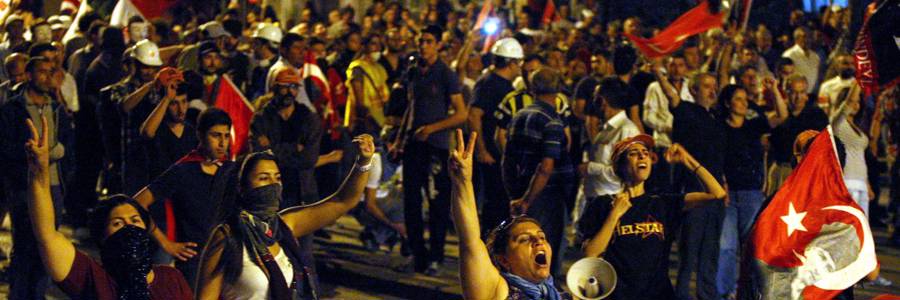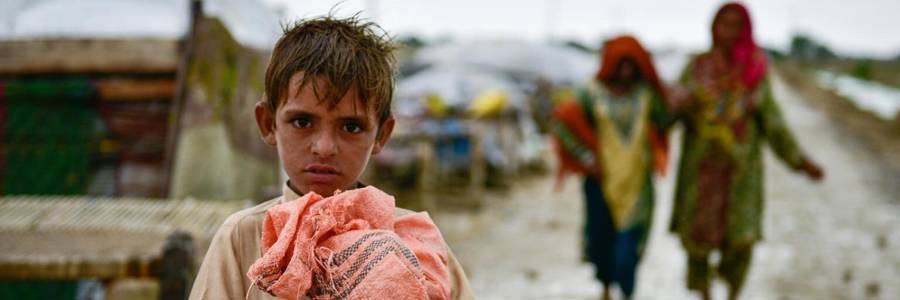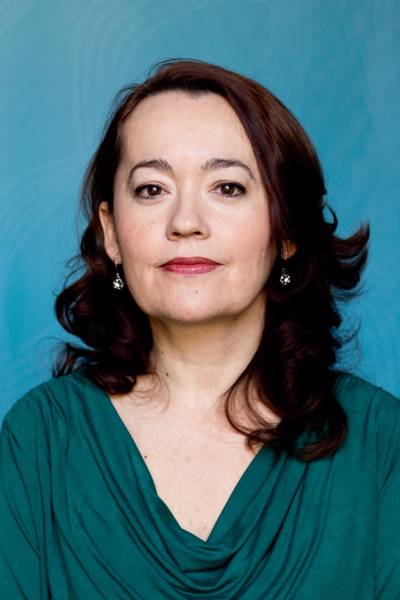How Should Europe Respond to the Demonstrations in Turkey?
Posted Friday, 28 Mar 2025 by Pinar Tank
All across Turkey, a battle is being waged over the country’s future. For more than a decade, the country’s democratic institutions have steadily deteriorated and now thousands have taken to the streets in an attempt to save the remains of its democracy and restore the rule of law.

One of the protestors’ most frequently used slogans is “hak, hukuk, adalet” – rights, law, justice. The gradual erosion of the rule of law has had serious consequences. In 2018, after the shift from a parliamentary to a presidential system, there was an expansion of presidential powers and for the first time, the country was described as “not free” by the well-respected international NGO Freedom House. Another similar organization, the World Justice Project, which measures how the rule of law is experienced in practice across countries, now ranks Turkey 117th out of 142 on its Rule of Law Index – only four places above Russia.
This democratic backsliding, ongoing for many years, has created a repressive regime in which many Turks have either become apathetic or resorted to self-censorship out of fear.
The arrest of Istanbul’s mayor, Ekrem İmamoğlu, on 19 March was, however, the straw that broke the camel’s back.
The uprising began with students and the women’s movement – those who have diminished hope for the future having suffered the greatest rollback of rights in recent years. Since then, the demonstrations have attracted other parts of society voicing their discontent with the country’s trajectory, both economically and politically.
Erdogan’s strongest card has always been the economy, but in recent years, Turks have struggled with inflation which, at its peak, reached 72 percent in 2022. It was revised down to 44 percent in January. When President Erdogan took the drastic step of arresting İmamoğlu, it shook the stock market, which fell to its lowest level since 2008.
The protesters have been met with tear gas, water cannons and rubber bullets. At the time of writing, almost 2000 people have been arrested in a little more than a week. Given the atmosphere of repression, the people’s revolt came as a surprise to everyone – not least the government. Demonstrations have taken place despite being officially banned. The constant stream of opposition figures, academics, journalists, and Kurds imprisoned in recent years illustrates the cost of resisting the regime. Opponents are often charged with “terrorism”, accusations also levelled at İmamoğlu.
Immediately after the arrest, several mayors across Europe expressed their support on social media. However, international reactions from European leaders have been slow to materialize. The exception is the immediate criticism from Germany’s outgoing Chancellor, Olaf Scholtz. Four days after the arrest, France issued a similar condemnation. The following day, the European Commission stated that the arrest raises questions about Turkey’s “adherence to its well-established democratic tradition”, without issuing an explicit condemnation. As of 28 March, the Norwegian Ministry of Foreign Affairs has not officially released any statement on the situation.
The brutal manner in which Turkey – an EU candidate country and NATO ally – is cracking down on protesters has gone largely uncriticized.
This is what Erdoğan is counting on: the silence of European leaders.
The logic behind this muted response is rooted in realpolitik. Turkey holds growing geopolitical significance. It plays a pivotal role in stabilizing Syria — or destabilizing it, should Ankara choose. It houses millions of refugees, positioning itself as a gatekeeper for European migration policy. Turkey is also vital for NATO, as the country could be a key contributor to strengthening Europe’s defence capabilities. Militarily, it is home to NATO’s second-largest battle-hardened army, potentially making it a crucial player in the alliance’s support for Ukraine. These are strong realpolitik reasons to tread carefully with Erdoğan’s government. But they are also short-term tactics that in the long run undermine the broader strategy of strengthening democracy in Europe.
Europe cannot claim to champion democracy in Ukraine while ignoring its suppression in Turkey.
To do so is to send a dangerous message: that our commitment to democratic ideals is transactional — expendable in the face of convenience.
Turkey is still, officially, an EU candidate country. It is also a NATO ally. These ties do not absolve us of responsibility; they heighten it. The EU and its leaders must find the courage to speak clearly and collectively. We must stand with the protesters, not for political gain, but because their struggle is ours too.
In a time of mounting global authoritarianism, civil resistance remains the last line of defence. Turkey’s demonstrators are risking their freedom to resist creeping autocracy. Europe must not look away.
- Pinar Tank is a Senior Researcher at PRIO
- This is an updated version of a Norwegian language op ed published by ABC Nyheter 26 March










